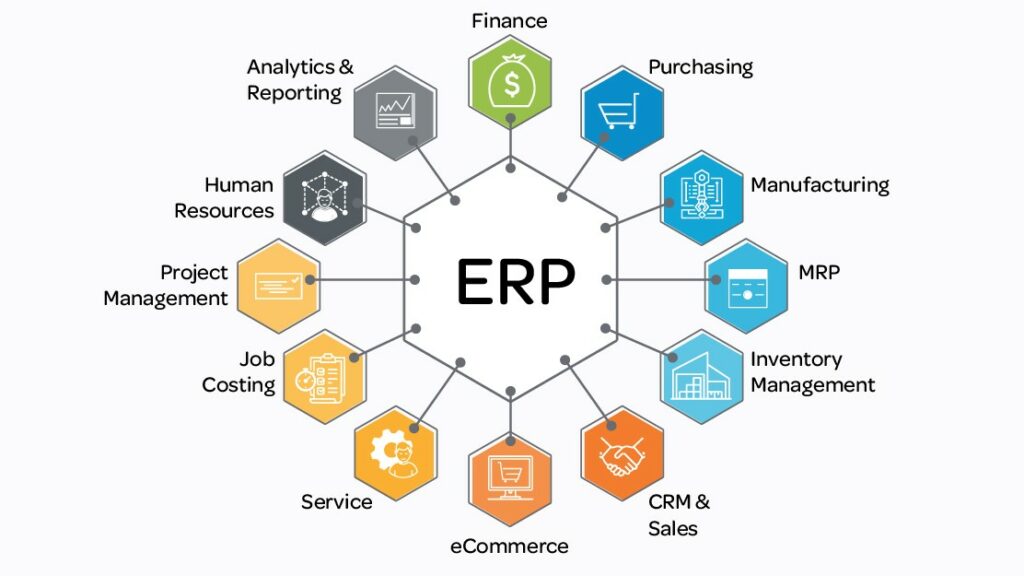In the fast-paced world of business, efficiency and streamlined processes are paramount. This has led to the widespread adoption of Enterprise Resource Planning (ERP) programs, sophisticated systems that integrate various business functions into a unified platform.
In this article, we’ll delve into the world of ERP programs, exploring their evolution, key features, benefits, and how businesses can navigate the landscape to choose the right solution.
Evolution of ERP Programs
ERP programs have come a long way since their inception. Initially developed to address the challenges of managing disparate systems, these programs have evolved with technology. The transition from traditional methods to ERP solutions has been a game-changer for many organizations, allowing them to stay competitive in an ever-changing market.

Key Features of ERP Programs
One of the defining aspects of ERP programs is their comprehensive set of features. These solutions excel in integration capabilities, allowing different departments to work seamlessly together. Additionally, robust data management and analytics tools empower businesses to make informed decisions based on real-time insights.
Benefits of Implementing ERP
The implementation of ERP programs brings a multitude of benefits. Improved efficiency is a common outcome, as tasks that once required manual intervention become automated. This not only saves time but also contributes to significant cost savings, making ERP a wise investment for businesses of all sizes.
Popular ERP Solutions
When it comes to ERP, there is no one-size-fits-all solution. Leading industry players offer a range of options, each catering to specific business needs. Understanding the strengths of each solution is crucial for businesses looking to enhance their operations through ERP implementation.
Choosing the Right ERP Program
Selecting the right ERP program is a critical decision for any business. Factors such as scalability, user-friendliness, and industry-specific requirements should be considered. Avoiding common pitfalls in the selection process ensures a smoother transition and long-term success with the chosen ERP solution.
Implementation Process
The implementation of ERP programs is a phased process. From initial planning to post-implementation support, a step-by-step guide is essential for success. Businesses should anticipate challenges and have strategies in place to overcome them, ensuring a seamless integration into their existing workflows.
Impact on Business Operations
Real-life success stories highlight the transformative impact ERP programs can have on business operations. Whether it’s streamlining supply chain management or enhancing customer relationship management, the outcomes are measurable and contribute to overall organizational success.
Future Trends in ERP
As technology continues to advance, so do ERP programs. Emerging trends such as Artificial Intelligence and Machine Learning are reshaping the ERP landscape. Businesses that stay abreast of these trends will be better positioned to adapt to the ever-changing business environment.
Case Studies
Examining case studies provides valuable insights into how ERP programs have been successfully implemented across different industries. Learning from both successes and failures helps businesses make informed decisions and avoid common pitfalls.
Customization and Integration
The ability to customize ERP programs to meet the unique needs of a business is a key consideration. Integration with other software solutions is also crucial for ensuring a cohesive and efficient workflow. Businesses should seek ERP solutions that offer flexibility and compatibility.
Training and Support
Transitioning to ERP requires the cooperation and understanding of employees. Providing thorough training and ongoing support is essential for a smooth transition. This ensures that employees can effectively use the new system, maximizing its benefits for the organization.
Security Concerns in ERP
While ERP programs offer numerous advantages, security concerns cannot be overlooked. Businesses must implement robust security measures to protect sensitive data. Addressing potential risks and staying vigilant against cyber threats is paramount for a secure ERP environment.
Cost Considerations
The cost of implementing ERP is a significant consideration for businesses. While there is an initial investment, the long-term benefits often outweigh the costs. Proper budgeting and understanding the return on investment are essential for making informed decisions in the ERP implementation process.
Conclusion
In conclusion, ERP programs are powerful tools that can revolutionize the way businesses operate. From improving efficiency to providing valuable insights, the benefits are numerous. As technology continues to advance, businesses should stay informed about the latest trends and innovations in ERP to remain competitive in their respective industries.